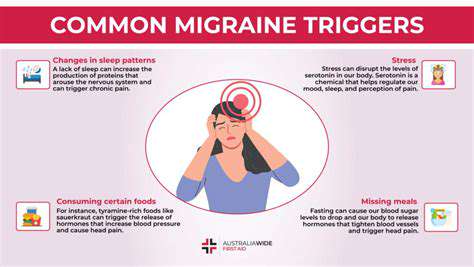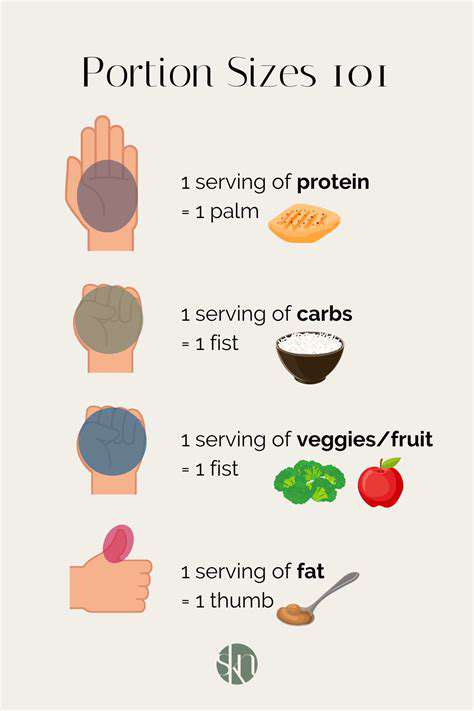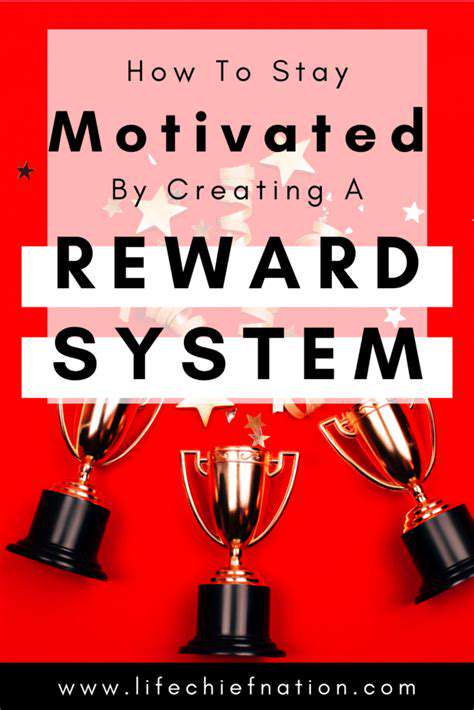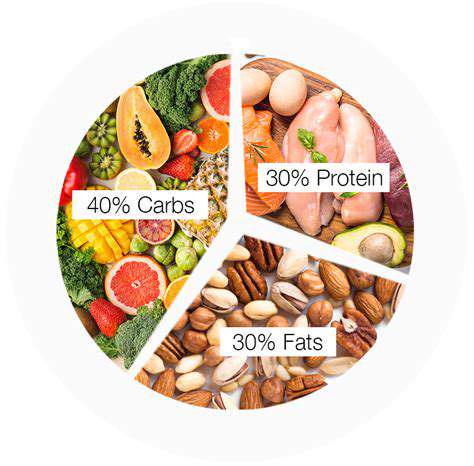Health Tips for People with Frequent Migraines

Identifying Potential Migraine Triggers
Understanding what triggers your migraines is crucial for effective management. Identifying these triggers allows you to proactively avoid them and potentially reduce the frequency and severity of your migraines. Common triggers can range from environmental factors to dietary choices, and even certain emotional states. A detailed awareness of your personal triggers can be a powerful tool in your migraine management arsenal.
Many people experience migraines in response to specific foods, drinks, or food additives. Keeping a detailed food diary can help pinpoint these dietary triggers. Note the foods and drinks you consume, and when you experience a migraine, noting the time of occurrence is also important. This meticulous record-keeping can illuminate patterns and help you identify potential migraine-inducing foods.
Lifestyle Factors and Migraine
Certain lifestyle factors can significantly impact migraine susceptibility. Stressful situations, lack of sleep, and changes in routine can all act as potential triggers. Regular sleep schedules and stress management techniques, such as meditation or deep breathing exercises, can be valuable in mitigating these triggers.
Dehydration is another potential trigger. Keeping well-hydrated throughout the day is essential for overall health and can potentially reduce migraine risk. Consistent water intake can contribute to a more stable physiological environment, potentially lessening the likelihood of migraines.
Environmental Influences on Migraine
Fluctuations in environmental conditions, such as changes in weather patterns, barometric pressure, and even strong smells, can sometimes act as migraine triggers. Being mindful of these external factors is important in managing potential migraine episodes.
Changes in temperature and humidity levels are often overlooked but can contribute to migraines in some individuals. Keeping a close eye on these factors, and adjusting your environment as needed, can be a proactive step in migraine management.
Dietary Considerations for Migraine Prevention
Certain foods and drinks are notorious for triggering migraines. Avoiding known triggers is a critical aspect of migraine prevention. This could involve limiting or eliminating certain types of cheeses, processed foods, or even fermented drinks. A balanced diet, rich in fruits, vegetables, and whole grains, can contribute to overall health and potentially reduce migraine frequency.
Keeping track of your dietary habits and noting any potential correlations between specific foods and migraine episodes can be extremely helpful. This detailed observation can significantly enhance your understanding of your individual triggers.
Emotional and Hormonal Factors
Emotional stress, anxiety, and even extreme joy can be triggers for migraines. Managing stress levels through relaxation techniques and maintaining a positive emotional state can be beneficial for preventing migraines.
Hormonal fluctuations, particularly in women, can significantly influence migraine patterns. Understanding these hormonal fluctuations and potentially adjusting your lifestyle or seeking medical advice can help in managing these migraines.


Nociceptors are specialized sensory neurons that act as the body's early warning system, detecting and signaling potentially harmful stimuli. These nerve endings are strategically located throughout the body, from the skin to internal organs, and they play a crucial role in protecting us from injury. Their function is paramount to our survival, as they transmit information about noxious stimuli to the central nervous system, enabling us to react appropriately and avoid further damage.
Read more about Health Tips for People with Frequent Migraines
Hot Recommendations
-
*Guide to Managing Gout Through Diet
-
*Best Habits for Financial Well being
-
*How to Build a Routine for Better Mental Health
-
*How to Eat Healthy on a Budget [Tips & Meal Ideas]
-
*Guide to Practicing Self Acceptance
-
*How to Incorporate More Movement Into Your Day
-
*Guide to Managing Chronic Pain Naturally
-
*Guide to Building a Reading Habit for Well being
-
*Top 5 Weight Loss Supplements That Actually Work
-
*Best Exercises for Postpartum Recovery [Beyond Abdominal Work]










